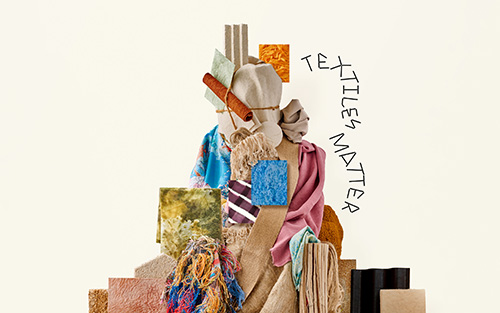
There was a break for two years due to the pandemic. Now Heimtextil, the international trade fair for home and contract textiles, will open its doors again at Messe Frankfurt from 10 to 13 January 2023. A wide range of product innovations for textile interior decoration will be presented. According to the fair, the aim is “to promote a cleaner, greener and more environmentally friendly textile and interior design sector”. This is important because the textile industry obtains its raw materials from a variety of sources and uses diverse processes to manufacture a wide range of products. This diversity “makes the textile sector one of the most problematic industries in terms of climate emergency. Conventional cotton farming, for example, occupies 2.5% of the world’s arable land and uses 24% of insecticides and 11% of pesticides. This costs $2.6 billion and is a cause of ecosystem and biodiversity destruction.”
In order to take responsibility for the processes, the industry is therefore focusing on a transition to a circular economy in the long term. The technical cycle applies to inorganic materials such as nylon, polyester, plastics and metals, which can be reused many times without loss of quality if they are optimally recycled. The biological cycle deals with organic materials; they originate from the natural environment and return to it at the end of their useful life. According to Heimtextil, the circular-flow idea is “no longer just a niche experiment but a genuine, practicable and exciting trailblazer that can address many of the problems facing the industry”.
In this context, Heimtextil also presents itself as a trend platform for textile materials and textile design under the keyword “Textiles Matter”. Four paths to the circular economy will be examined: “Make and Remake” looks at how the life of existing materials can be extended in the technical cycle and how “beautifully recycled and reworked textiles can be”. “Continuous” looks at “innovative approaches to closing the loop” alongside waste-free reprocessing of textiles and environmentally friendly product life cycles. In the biological cycle, “From Earth” explores textile design “that reconnects us with nature” and revisits traditional natural fibres and natural dyes. Finally, “Nature Engineered” shows “how nature and technology can come together to create textiles and materials that are smart, functional and environmentally friendly at the same time”.
More on ndion
Discover more articles on the topic of circular economy and fairs.
Share this page on Social Media:

